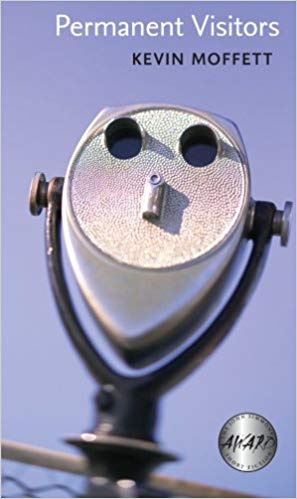There is an awful, awesome ache at the center of Kevin Moffett’s stories that is difficult to describe precisely. All of the complex, careworn characters in this exceptional debut collection (winner of the University of Iowa’s John Simmons Short Fiction Award) endure bouts of sorrowful existential cramping that make them uncertain as to what it is they crave, or prompt them to crave exactly what they cannot have. In “Tattooizm,” included in The Best American Short Stories 2006, a young woman spends her summer stupefied by sex, chasing a shiny future that seems destined to tarnish the moment she apprehends it. Charlie, the oddly perspicacious (and somehow lovable) narrator of “The Medicine Man,” searches for cures in all the wrong places. Elsewhere in the collection, a strange and vulnerable courtship is sparked in a manatee pool among retirees; the owner of a plant nursery mourns the food-poisoning death of an employee; the relationship between a dying man and the volunteer sent to befriend him goes from benevolent to peculiar to treacherous…
If all this makes the book sound like a despair-sodden downer, well, to a certain extent, it is. But Moffett’s excellently appointed sentences and the element of soft-core satire that runs through the work lift these tales gently out of doomland and into a much more absurd, emotionally diverse, and authentic realm than any swift synopses might suggest. At their most gratifying, the stories refuse their characters any easy redemption, but also grant them a clear (if momentary) sense of their own predicaments. In the wonderful “Space,” the extent of a young man’s grief at the recent death of his mother is offset and obfuscated by awkward repartee with his grandmother (who waits until they are in Sears buying funeral shoes to tell him his mother has died) and his encounter with a young immigrant and her infant child. It is not until his grandmother finally reveals a precious (if anticlimactic) deathbed message from his mother that he is able to come to grips with the depth and inscrutability of his grief: “Whenever some errant powder smell reminded him of her, he would realize that while her absence made the hole, her absence was also what came later to fill it.”
Still, if Moffett can do heartrending, he can also do funny, and sometimes both simultaneously. In the collection’s closer, the author charges fearlessly over the top, combining and amplifying some recurring themes in a hysterical (in more ways than one) send-up of the bloated, beleaguered American Dream. Like the author’s other characters, Spiros, hero of “The Newcomer” (and keen student at the “Institute for Advanced American Furtherance”), is aware of some shortfall in his own experience and ability to communicate, but refuses to let this get in the way of his number one aspiration: to woo and bed a “frank and wistful” woman. And like others in the collection, Spiros’s female counterpart, Ekaterina, finds herself alternately hypnotized and anesthetized by what goes prancing across her television screen, the glamorous villains and slick salespeople telling her that “what you have is unsatisfactory and what you long for is probably too large.” The ending here is an orchestrated clash between the institute’s “clubs” that might one day result in a sense of connection (or at least sex) between parties involved. It also recalls another Moffett character’s resigned query and a quiet frustration, a pairing that underpins the collection: “Why does everything have to be so hostile and funny?”





